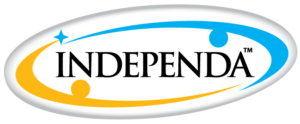Words can evoke powerful ideas and emotions. Finding the right word to describe relationships can be especially frustrating. I have struggled a long time to find the right word or term to describe the many types of relationships between elderly people and those who help them remain active, engaged and as independent as possible. Interestingly, even people providing hands-on care do not self identify as caregivers. My quest has been to find an inclusive word or phrase that doesn't require a string of modifiers to describe the relationship between these individuals.
For me the traditional term "caregiver" is too restrictive. It evokes an image of people on-site providing hands-on care or coordinating care. It implies a passive role to the person who is the "object" of care. Family, friends and others nearby and afar that interact with older people and make them a part of their own lives often don't relate to this title. It also excludes those helping older people by coordinating their calendars, reminding them to take medications, navigating health and social services, advocating for them, telephoning them, or in some other way enriching their lives.
The word used for caregivers in the U.K. is "carers". This gets a bit closer to being the right word but it doesn't connote an important aspect of the relationship – partnering. A partnership is defined as a relationship between individuals or groups that is characterized by mutual cooperation and responsibility for achieving specific goals. So I have settled on "Care Partners" which is inclusive, egalitarian and brings together the elderly person, family, friends, professionals, paid and unpaid personal care providers and community services.
What word do you best relate to?
By: Dr. Richard Della Penna, Chief Medical Officer at Independa, Inc.




